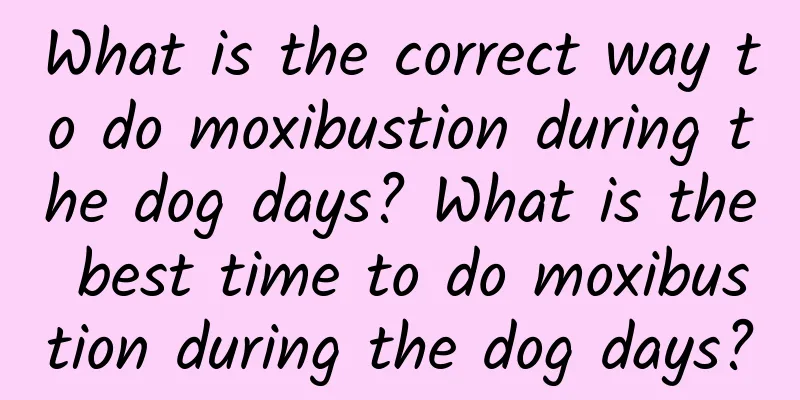A complete guide to vaccinations for babies aged 0-6 years old, all in one article

|
It is said that after having children, parents have both armor and weaknesses. Normally, when children have some problems, such as bloating, refusal to drink milk, or crying, it makes people panic and heartbroken. If you get sick with a runny nose, a cold, or a fever, it is true that "the child is sick, but the mother (father) is heartbroken." The animated picture comes from soogif Many diseases can be effectively prevented through vaccination. From the moment a child is born, they begin to receive protection from various vaccines. When should each vaccine be given? What is the difference between Class I and Class II vaccines? Which self-paid vaccines should be given priority? How to choose between monovalent and multivalent vaccines? What should I pay attention to before vaccination? … When faced with these issues, it is estimated that many parents do not quite understand. Based on the latest national requirements on vaccination, we have compiled the "Latest Version of the Complete Guide to Children's Vaccinations" to help everyone understand their confusion. Class I vaccines (free vaccines) are not required unless there are special circumstances. Category 1 vaccines are free vaccines, which are provided free of charge to citizens after the government pays for them. If all first-class vaccines are not received, it may affect the baby's admission to nursery, kindergarten, and school. Parents should quickly save this baby vaccination schedule: Category II vaccines (self-paid vaccines) should be given as much as possible if economic conditions permit Category II vaccines are self-paid and voluntary vaccines. It can be said to be a supplement to a type of vaccine and can prevent diseases that are not covered by a type of vaccine. Vaccination is also very necessary for babies. As long as economic conditions permit, you should get the Category II vaccine if possible! The copy homework version includes one and two types of practical but expensive After seeing Category One and Category Two, plus the time for the injections, many parents reported that they were confused, very confused. So we put together this "vaccine according to the version" vaccination plan. This version of the plan can be summed up in one word: expensive! It includes the very necessary Category II vaccines, and the free vaccines have been optimized. For example, using pentavalent vaccine to replace polio, whooping cough, diphtheria, tetanus, and HIB vaccines. Compared with conventional separate vaccinations, 8 fewer shots can be given, reducing the pain and risk of adverse reactions caused by vaccination for the baby. If financial conditions permit, it is recommended that parents vaccinate their babies according to this version. Frequently asked questions about vaccination 1. What should I pay attention to when getting vaccinated? ① Make an appointment for vaccination in advance, Hangzhou Health Pass - Appointment Registration - Select the vaccination hospital - Preventive Health Department - Appointment Time (taking Hangzhou as an example). ② Bring your child’s vaccination certificate, baby’s social security card, and baby. ③If your baby is not feeling well, communicate with the doctor in advance to see if he can be vaccinated. 2. Is it necessary to get vaccinated at your own expense? Category II vaccines are self-paid and voluntary vaccines. They can be said to be a supplement to Category I vaccines and can prevent diseases not covered by Category I vaccines. Vaccination is also very necessary for babies. As long as economic conditions permit, you should get the Category II vaccine if possible! 3. Should I choose a combined vaccine or a single vaccine? If a combination vaccine is available for the same type of vaccine, try to choose the combined vaccine. This can reduce the total number of doses administered and reduce the pain and risk of adverse reactions to the baby caused by vaccination. But be careful to avoid repeated vaccination. 4. Can different vaccines be administered at the same time? As long as you choose the appropriate vaccines according to the national vaccination standards, they can be administered at the same time and will not increase the chance of side effects. Please follow local regulations and doctor's advice for specific arrangements. 5. Can I still get vaccinated if I miss the best time for vaccination? Can. Delaying vaccination only delays the time for the vaccine to take effect. As long as all doses can be completed, it will not affect the overall and long-term protective effect of the vaccine. However, unless there are special circumstances, it is still recommended that parents take their children to the vaccination site for vaccination on time. After all, early vaccination means early protection! 6. Choose monovalent vaccine or N-valent vaccine? This N refers to the number of strain types contained in the vaccine. For example, the 13-valent pneumococcal vaccine contains the 13 most pathogenic strain types, and the 23-valent pneumococcal vaccine contains the 23 most pathogenic strain types. Generally speaking, the larger the N, the better, but the specific vaccination also depends on comprehensive consideration of the infection rate of the covered serotypes in the population and the vaccination age. Just like the 23-valent pneumococcal vaccine, although it has more valents, it is not suitable for vaccination in young children. For children under 2 years old, the 13-valent vaccine is recommended rather than the 23-valent vaccine. 7. If I get the 13-valent pneumococcal vaccine, will I not get pneumonia? No matter which vaccine you get, there is no guarantee that your child will be 100% free from illness after receiving it. However, there is no guarantee that you will not get sick ≠ you can choose whether to get vaccinated. When a child is born, health is the top priority. Vaccination is the most direct and effective method to prevent diseases. As long as conditions permit, parents should vaccinate their children in a timely manner. Children suffer less, mothers worry less~ |
<<: Why is fried dough twist so high in calories? How to make fried dough twist at home
>>: Talking about Sea Cucumbers in Winter
Recommend
How many months of breastfeeding do you lose weight faster?
Pregnant women, after ten months of pregnancy, fi...
What should I do if I have sex one week after a miscarriage?
It is well known that women's bodies are very...
My period was delayed by 20 days after I had an IUD inserted.
Generally speaking, a normal menstrual cycle for ...
Lao Zhang's "Health War"
Science expert: Long Xiaochu Unit: Liuyi Village ...
What is the flower language of azalea? What is the meaning of azalea?
Azaleas represent the joy of love. Whether you wa...
Why does the outer thigh feel numb after a cesarean section?
More and more women choose to have children by ce...
How to diagnose the disease when the leucorrhea is yellow-green and odorless?
When the patient finds that the leucorrhea is yel...
All of them are "big oil absorbers"! These 5 types of vegetarian food can make you grow fatter than meat dishes
This article was reviewed by Zhang Zhaomin, Maste...
What is the correct sleeping position during breastfeeding?
During the breastfeeding period, many women like ...
Does a 50mm uterine fibroid require surgery?
As we all know, uterine fibroids can be benign or...
Vulva itching with acne pictures
Vulvar itching and acne, but folliculitis in the ...
What are the symptoms of premature aging of the warm nest?
The ovaries are relatively important organs in th...
What is the difference between oak and solid wood? How to maintain oak flooring
Many friends who care about grade and quality use...
I had a miscarriage one month into my pregnancy. Do I need a uterine curettage?
Many people cannot tell the difference between sp...









